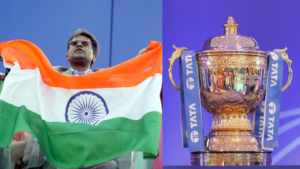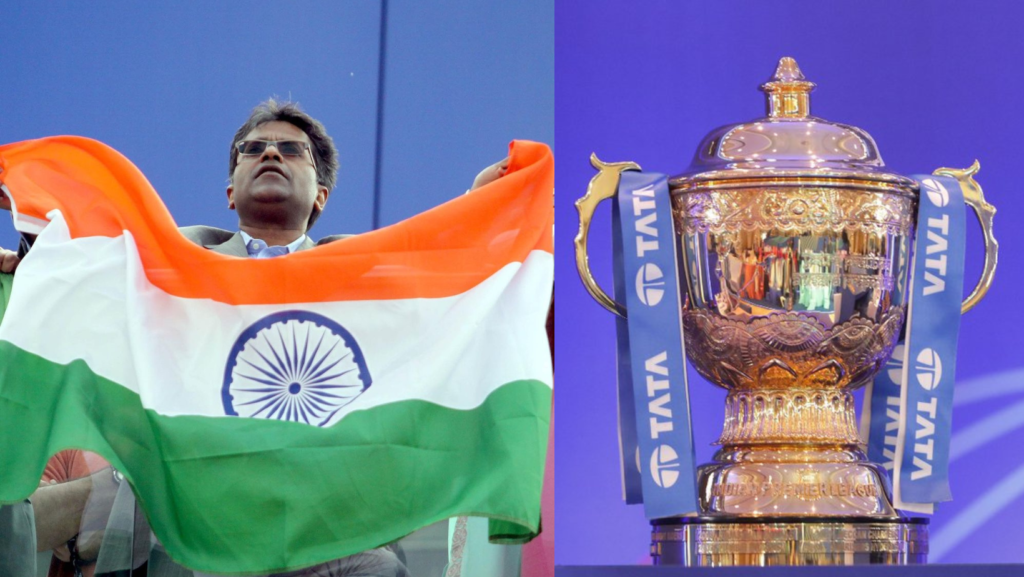
With the recent news that Saudi Arabia, which has invested billions of dollars into sports over the last few years, has shown an interest in the Indian Premier League (IPL), who better to talk to about the subject than Lalit Modi, whose brainchild the league was? Modi’s creation utterly transformed the cricket landscape. But what does the future hold, especially given the interest from Saudi, whose football league has already poached several stars from European leagues? In this in-depth conversation with Boria Majumdar, RevSportz editor-in-chief, Modi talks of this, how the IPL has grown and why he feels the 30-billion valuation may be a modest one.
Excerpts from the second part of the conversation:
Boria: A couple more questions, Lalit. One, I mean, when I see football, the Saudi football league have lured players by offering them ten times the money right now, compared to what Europe offered. Top IPL salaries are anywhere between one and a half to $2 million for players. Now, if a Saudi-backed league starts offering, say, ten to $15 million or anything like that, how high could the salaries be?
Lalit Modi: I want to stop you there. Saudi-backed league? It ain’t happening. They have no infrastructure right now. There are no stadiums right now. I don’t know what we keep talking about the Saudi League, but it isn’t happening right now. If it is going to happen, it’s going to be at least five to seven years away. For them to build the infrastructure, and on top of that, they have no following for cricket. So you got to put that into another perspective, that we’re 15 to 20 years away. So, it’s not happening. What they’re looking at is investing into India, not taking it to Saudi Arabia. Okay? You may have an exhibition match here or there, but for that also, you got to have the infrastructure to put it up. You got to build the fan base. You’ve got to build the loyalty towards cricket. That didn’t happen. It’s only the migrant workers watching cricket right now. It isn’t anybody else. The Saudi population is tuned towards football. It’s like if you’re telling somebody that India is going to become a football country, we are hallucinating. It isn’t happening. And I said that even 15 years ago.
Football is coming in. Football is coming in. It isn’t happening. A lot of people I’ve tried to sell sponsorship to, they didn’t believe in the IPL because they said football is going to come in. They realised later that cricket is the only thing. It’s only cricket, cricket, cricket. And we’ve seen all other countries, including the Big Bash, which is the second-most successful league, I would say, today in Australia. The Hundred, that floundered. The English wanted to carve their own path and didn’t want to follow India. So they came up with a new concept called The Hundred, which nobody understands. And of course, they made a stupid mistake of going into the counties. If they’d come to me, England can be one of the most profitable countries in the world, without doubt. But they decided to go with The Hundred, which has got no traction at all. The South African league, I have little to say about. The Middle Eastern one is going up, but will take a long, long time. America has just started, it’s a blip out there. It’s a start, it’s good. But you have to look at it from a 15 or 20-year horizon, not before that at all. I don’t think it will make a profit even for another 15 years. So there’s a lot of investment to be done in America. I hear the Olympics are coming in and looking at cricket. That would be great for the game, I have no doubt, but it’s just the first year. You can’t expect miracles to happen and change the habits in America at all.
Boria: But tell me something. I mean, the way you explain to me team valuations, based on what numbers the Saudis have said. For the $30 billion valuation that we have talked about here or the investment. You said $1.8 billion per team. If I think in terms of player salaries, which is still very less compared to what the team valuations have become. How do you see player salaries? Do you see players getting far more money?
Lalit Modi: That’s what, the competition is going to keep going up. You know, when we started this, a player salary used to be five lakhs. In the actual world. And then, they went to a few hundred thousand when we started the IPL. So they jumped from $10,000 to a few hundred thousand dollars. In 15 years, it’s gone to one and a half to two million. I can see every year that is increasing.
But also keep in mind, why only look at player salary? In India, it’s different altogether. Because a lot of the Indian players make a lot of money on endorsements. A large amount of money, compared to anywhere else in the world. So you add all of that in. And look at the way the livelihoods of so many players have changed. Because we only allow four internationals (in a playing XI). I don’t think we need international players for the IPL any more. I mean, we have them because they’re good to have. And they add a lot to it, without doubt. But it wouldn’t flounder if it was a hundred percent Indian league. In other words, we have enough talent today on the bench, in the country, across the country. That you can’t get a job. Earlier, you had only one team, the Indian national team, which had 11 playing berths, and probably another five on the bench – 16 or 18 berths. And those players lasted five to 10 years in the team. So the number of new entrants into the Indian cricket team was maybe two or three, maximum.
You look at the talent today. It’s absolutely mind-blowing. You look at them. Most impressive for me have been the Afghan team. Then you look at someone like Mohammed Shami, from Kashmir. I mean, I think he’s from Kashmir, if I am not mistaken.
Boria: Mohammed Shami is from Uttar Pradesh.
Lalit: I mean, Uttar Pradesh. But look Indian territory-wide. Cricket did not have the infrastructure, didn’t have coaching camps, didn’t have an avenue for the players to chase their ambitions. It’s a testament to the fact that the IPL has promoted all of the sports in India.
And now, the critical thing that the BCCI need to understand is that you need to give great fan experience. And you cannot forget that, you cannot emphasise more on that. The quality of the stadium. If you look at the new stadiums coming up around the world, they’re state of the art. And it’s a high cost. But what is the 50 per cent revenue for the BCCI for? Ultimately, it’s an organisation of the people, by the people, for the people. And so, the money should be employed to upgrade the experience for the fans.
If there is, you know, an Uttar Pradesh team and a Lucknow-based team, there is no reasons why it can’t be in Varanasi or Kanpur or Noida. And the team should be able to capitalise on multiple locations.
Also, I foresee today, a secondary league coming, whether it’s relegation, down to a second league, and a junior league coming in. Promotion and relegation would make it completely innovative, and take the game to a different level altogether.
Boria: That was the last question, that, you know, with clear interest from, say, Saudi, or, you know, another country, this is kind of vindication for the brand. Do you see IPL introducing a tier-two league, a relegation system, expanding, and perhaps that eating into the 50-over format going forward? If I asked you to take yourself 10 years, to your 70th birthday, where do you see IPL?
Lalit Modi: So, to answer that question, I have to first talk about cricket. Where do I see cricket in India? I see 50 overs going, completely. I see no relevance to it. It’s there for the sake of being there. I see relevance in a four-day Test, not five days, and a day-night Test because people don’t have the luxury to sit from morning to evening. If it’s a day-night Test, they might go after office hours to watch the game. And the Twenty20 format.
I’m not part of the BCCI, they haven’t spoken to me in nearly 15 years. If I was there, I would definitely be thinking of launching a second tier, with ownership coming in – not at the valuation of a billion dollars, but at valuation of 60 to maybe 100 million.
This was the valuation of the IPL in year one. That can be up to 20 teams, coming into the secondary league, and two teams are relegated [from the IPL]. That would make it extremely competitive, extremely valuable to the players, and it would make a whole new game altogether.
Instead of four foreign players, you’d have two. Or maybe you’d need four because you need more talent to be trained up. What the foreign players do is bring in locker-room discipline, and provide the experience that made them what they are today.
Boria: Fascinating, I mean, yes, I’m aware that you’re not in touch with the BCCI, nor did I imply that, but it is always a thought-provoking thing to speak to you, because that’s what it is about. This game is about ideas. And when you sold the IPL in 2008, it was about ideas. So I keep saying this.
In my book, Maverick Commissioner, I’ve said it, that, you know, we may be critical of you, but let’s give the devil his due. I mean, it was Lalit Modi, who created the IPL, and that’s what it is. The way he ran it, you can question. And I’ve done that.
I’ve had my run-ins with him. I’ve asked him the questions, but I’ve got to say one thing. It is always thought-provoking when you speak to him, because it’s about ideas, and ideas that transform our world. The IPL is one such idea, which is only there to grow. Lalit Modi, thank you very much for your time. Once again, I mean, it’s always interesting to talk to you. Hopefully, at some point in time, we’ll be able to do a physical interview as well. But till then, thank you very much.




